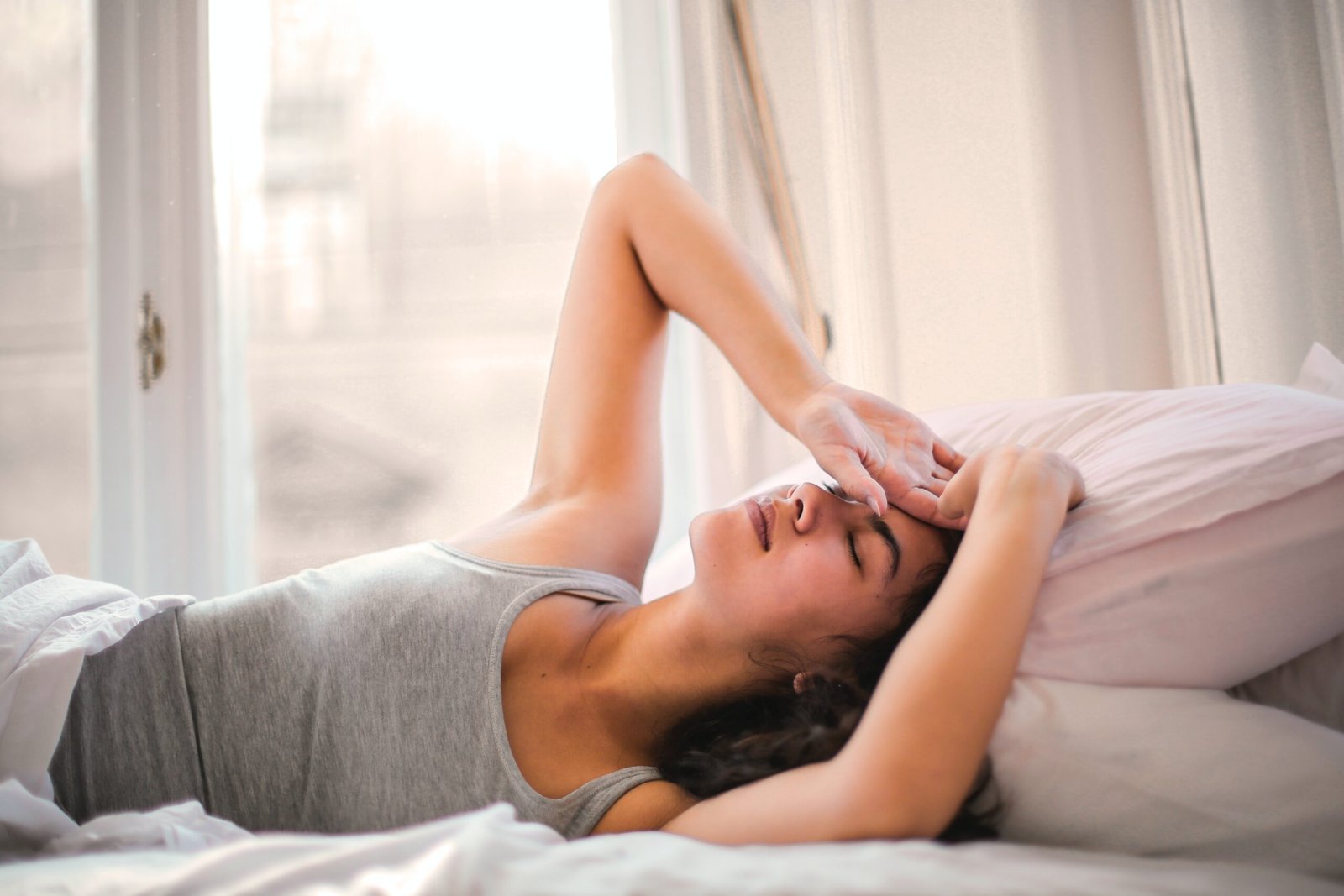Sleep disorders are a range of medical diseases that impair one’s capacity to sleep soundly on a regular basis. Sleep disturbances, whether caused by a medical condition or excessive stress, are growing more widespread in the United States.

Indeed, more than one-third of adults in the United States report receiving less than 7 hours of sleep per day. On weeknights, more than 70% of high school students report obtaining less than 8 hours of sleep.
Most people have occasional sleeping issues as a result of stress, hectic schedules, and other external influences. However, if these concerns become frequent and interfere with daily life, they may suggest a sleeping disorder.
People with sleep disorders may have difficulty going asleep and may feel exceedingly fatigued during the day, depending on the type of sleep problem. Sleep deprivation can have an adverse effect on energy, mood, concentration, and general health.
Sleep disturbances can be an indication of another medical or mental health disease in some situations. Once the underlying cause is treated, these sleeping problems may gradually go away.
When a sleep disturbance is not caused by another ailment, it is usually treated with a combination of medical therapies and lifestyle adjustments.
If you feel you have a sleep disturbance, it’s critical to get a diagnosis and treatment as soon as possible. When sleep issues go untreated, the negative impacts can have far-reaching health ramifications.
They can also have an impact on your professional performance, cause tension in relationships, and hinder your ability to do daily tasks.
Different Types of Sleep Disorders
There are different sorts of sleep problems. Some may be caused by underlying medical conditions.
Insomnia
Insomnia is defined as the inability to fall or stay asleep. Jet lag, stress and anxiety, hormones, or digestive issues can all contribute to it. It could also be an indication of something else.
Insomnia can be detrimental to your general health and quality of life, potentially resulting in:
- depression
- focusing difficulties
- irritability
- gaining weight
- hampered work or academic performance
Insomnia is unfortunately very prevalent. It affects up to half of all American adults at some point in their lives.
The disorder is especially common in older people and women.
Insomnia is typically categorized into three types:
- Chronic insomnia occurs when it occurs on a regular basis for at least one month.
- when insomnia occurs on a regular basis
- When insomnia lasts only a few nights at a time, it is said to be transitory.
Sleep Apnea
Sleep apnea is defined by pauses in breathing while sleeping. This is a dangerous medical disorder in which the body consumes less oxygen. It can also cause you to wake up in the middle of the night.
There are two varieties:
- obstructive sleep apnea, in which the flow of air is interrupted because the airway is restricted or too narrow, and
- Central sleep apnea is caused by a breakdown in the communication between the brain and the muscles that control your breathing.
Parasomnias
Parasomnias are a type of sleep disorder characterized by abnormal movements and actions while sleeping. They are as follows:
- sleepwalking
- sleep conversing
- groaning
- nightmares
- bedwetting
- Jaw clenching or teeth grinding
Restless leg syndrome
Restless leg syndrome (RLS) is characterized by an intense need to move one’s legs. This desire is occasionally accompanied by a tingling sensation in the legs. These symptoms can occur throughout the day, although they are most common at night.
RLS is frequently linked to medical illnesses such as attention deficit hyperactivity disorder (ADHD) and Parkinson’s disease, however the exact reason is not always recognized.
Narcolepsy
Narcolepsy is distinguished by “sleep attacks” that occur while the person is awake. This means you will become incredibly fatigued and fall asleep unexpectedly.
The disease may also produce sleep paralysis, in which you are physically unable to move immediately after waking up. Although narcolepsy can arise on its own, it is also linked to other neurological illnesses including multiple sclerosis.
Symptoms of Sleep Disorders
The intensity and kind of sleeping disturbance influence the symptoms. They may also differ when sleep disturbances are caused by another condition.
However, general sleep disorder symptoms include:
- Having trouble falling or staying asleep
- weariness during the day
- a great desire to nap during the day
- strange breathing patterns
- strange or uncomfortable urges to shift when sleeping
- unusual movement or other sleep experiences
- unintended shifts in your sleep/wake cycle
- agitation or anxiety
- poor work or school performance
- inability to concentrate
- depression
- gaining weight
Causes of Sleep Disorders
Sleep disruptions can be caused by a variety of illnesses, diseases, and disorders. Sleep difficulties are frequently the outcome of an underlying health problem.
Allergies and breathing difficulties
Allergies, colds, and upper respiratory infections all make sleeping difficult. Sleeping problems can also be caused by an inability to breathe through your nose.
Urine frequency
Nocturia, or frequent urination, might cause you to wake up during the night and disrupt your sleep. Hormonal imbalances and urinary tract illnesses may contribute to the development of this condition.
If your frequent urination is accompanied by bleeding or pain, see your doctor immediately away.
Chronic discomfort
Constant pain can make falling asleep difficult. It may even wake you up after you have fallen asleep. The following are some of the most common causes of chronic pain:
- arthritis
- syndrome of chronic fatigue
- fibromyalgia
- IBD (Irritable Bowel Disease)
- chronic headaches
- ongoing lower back pain
In some circumstances, sleep disturbances can aggravate chronic pain. For example, experts believe that sleeping disorders may contribute to the development of fibromyalgia.
Anxiety and stress
Sleep quality is frequently harmed by stress and anxiety. You may find it difficult to fall or remain asleep. Nightmares, sleep talking, or sleepwalking can all interfere with your sleep.
Diagnosing Sleep Disorders
Your doctor will begin by performing a physical examination and gathering information about your symptoms and medical history. They may also request the following tests:
PSG (Polysomnography):
This is a lab sleep study that compares oxygen levels, body movements, and brain waves to see how they interrupt sleep vs. a home sleep study (HST) that is done at home and used to detect sleep apnea.
Electroencephalogram(EEG):
This is a test that evaluates electrical activity in the brain and identifies any potential abnormalities related with it. It is a component of polysomnography.
Multiple sleep latency test (MSLT):
To help diagnose narcolepsy, this daytime napping study is utilized in conjunction with a PSG at night.
These tests can be critical in selecting the best treatment plan for sleep disorders.
Treatments for sleep disorders
The treatment for sleep disturbances varies according to the nature and underlying cause. However, it is usually a combination of medical therapies and dietary adjustments.
Medical procedures
Any of the following medical treatments may be used to treat sleep disorders:
- sleeping tablets
- supplements containing melatonin
- Medication for allergies or colds
- drugs to treat any underlying health problems
- breathing apparatus or surgery (usually for sleep apnea)
- a mouth guard (usually for teeth grinding)
Changes in lifestyle
Lifestyle changes can significantly enhance your sleep quality, especially when combined with medical therapies. Consider the following:
- Including more veggies and seafood in your diet, as well as limiting your sugar consumption
- exercise and stretching to relieve stress and anxiety
- establishing and adhering to a regular sleeping routine
- consuming less water before going to bed
- decreasing your caffeine consumption, particularly in the late afternoon or evening
- lowering cigarette and alcohol consumption
- consuming smaller low-carbohydrate meals before going to bed
- following your doctor’s advice on keeping a healthy weight
Going to bed and waking up at the same time every day can also help you sleep better. While it may be tempting to sleep in on weekends, this might make waking up and falling asleep during the weekday more challenging.
Summery
The consequences of sleep disorders can have such a negative impact on your life that you will probably desire help right now. Unfortunately, it may take a little bit longer to conclude situations that have been going on for a long period.
You can, however, get better sleep if you continue to follow the treatment plan your doctor has prescribed for you and keep an open line of communication with him or her.
Read Also – Purpose of Sleep
FAQ
What are serious sleep disorders?
What exactly is a case of parasomnia?
What are the symptoms of a sleeping disorder?
How can you get evaluated for sleep disorders?
What is sleep schizophrenia?
What is a Dyssomnia?
References –
- Insomnia. (n.d.).
ucsfhealth.org/conditions/insomnia/index.html - Mayo Clinic Staff. (2018). Polysomnography (sleep study).
mayoclinic.org/tests-procedures/polysomnography/basics/definition/prc-20013229 - Mayo Clinic Staff. (2019). Sleep disorders.
mayoclinic.org/diseases-conditions/sleep-disorders/symptoms-causes/syc-20354018 - Parasomnias & disruptive sleep disorders. (2017).
my.clevelandclinic.org/services/neurological_institute/sleep-disorders-center/disorders-conditions/hic-parasomnias

